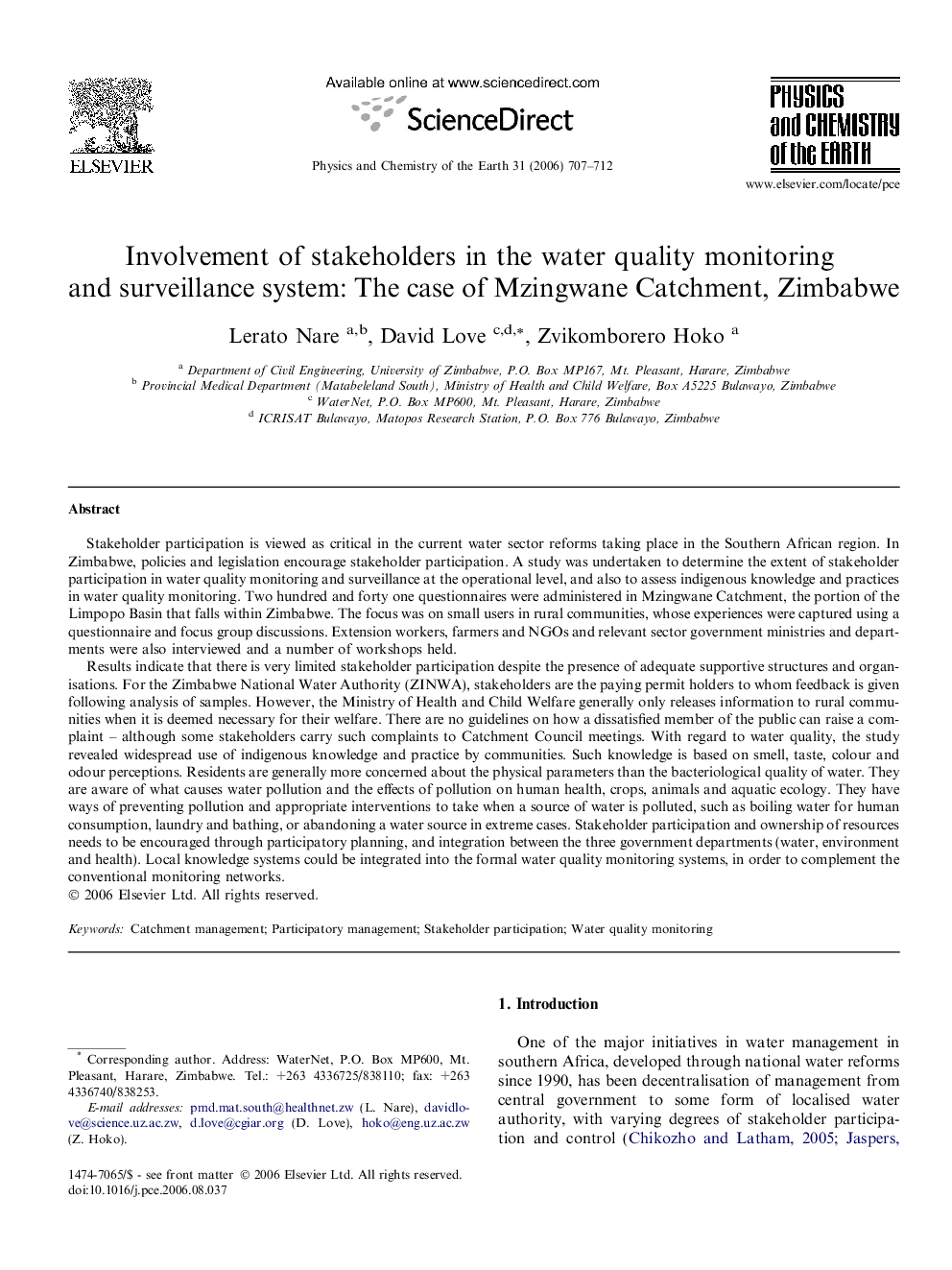| کد مقاله | کد نشریه | سال انتشار | مقاله انگلیسی | نسخه تمام متن |
|---|---|---|---|---|
| 4722165 | 1639408 | 2006 | 6 صفحه PDF | دانلود رایگان |

Stakeholder participation is viewed as critical in the current water sector reforms taking place in the Southern African region. In Zimbabwe, policies and legislation encourage stakeholder participation. A study was undertaken to determine the extent of stakeholder participation in water quality monitoring and surveillance at the operational level, and also to assess indigenous knowledge and practices in water quality monitoring. Two hundred and forty one questionnaires were administered in Mzingwane Catchment, the portion of the Limpopo Basin that falls within Zimbabwe. The focus was on small users in rural communities, whose experiences were captured using a questionnaire and focus group discussions. Extension workers, farmers and NGOs and relevant sector government ministries and departments were also interviewed and a number of workshops held.Results indicate that there is very limited stakeholder participation despite the presence of adequate supportive structures and organisations. For the Zimbabwe National Water Authority (ZINWA), stakeholders are the paying permit holders to whom feedback is given following analysis of samples. However, the Ministry of Health and Child Welfare generally only releases information to rural communities when it is deemed necessary for their welfare. There are no guidelines on how a dissatisfied member of the public can raise a complaint – although some stakeholders carry such complaints to Catchment Council meetings. With regard to water quality, the study revealed widespread use of indigenous knowledge and practice by communities. Such knowledge is based on smell, taste, colour and odour perceptions. Residents are generally more concerned about the physical parameters than the bacteriological quality of water. They are aware of what causes water pollution and the effects of pollution on human health, crops, animals and aquatic ecology. They have ways of preventing pollution and appropriate interventions to take when a source of water is polluted, such as boiling water for human consumption, laundry and bathing, or abandoning a water source in extreme cases. Stakeholder participation and ownership of resources needs to be encouraged through participatory planning, and integration between the three government departments (water, environment and health). Local knowledge systems could be integrated into the formal water quality monitoring systems, in order to complement the conventional monitoring networks.
Journal: Physics and Chemistry of the Earth, Parts A/B/C - Volume 31, Issues 15–16, 2006, Pages 707–712